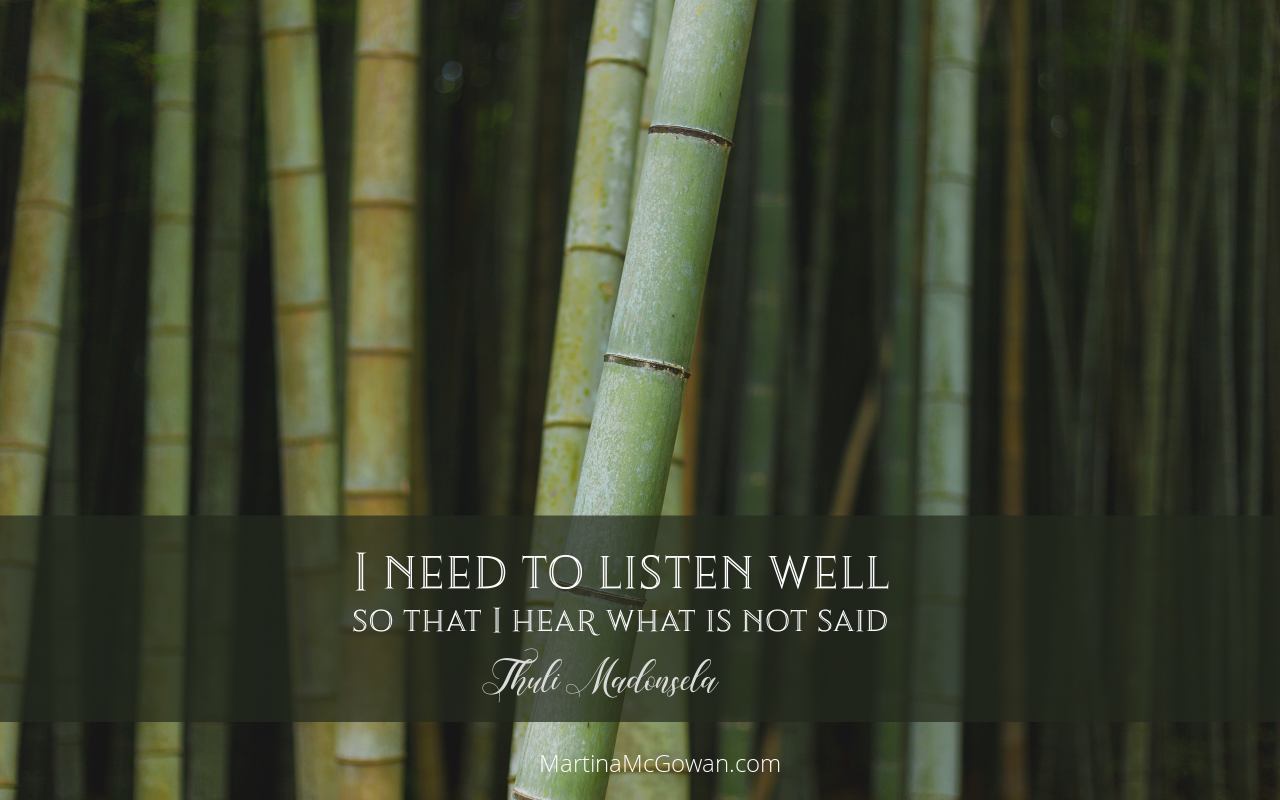This is the problem with dealing with someone who is actually a good listener.
They don’t jump in on your sentences, saving you from actually finishing them, or talk over you, allowing what you do manage to get out to be lost or altered in transit.
Instead, they wait, so you have to keep going.
Sarah Dessen
It’s not news to anyone that we live in a highly distracting and distractable world. And, that most of the sounds, pictures, videos, etc. are just that, distractions.
There are people in our lives, at home and at work, with whom we would like to make stronger bonds. But with all the modern technology at our disposal for communicating better, many people seem to have forgotten how to communicate clearly with others, whether on a call or standing right next to them. Listening has become a lost art.
Knowing how to listen effectively comes with lots of benefits. It can strengthen our marriages, liaisons, and partnerships and boost our careers. But we must take time to learn to do it effectively.
The next time someone wants to talk with you, or you want to approach someone, consider these steps:
1. Focus your attention on them
Our activities and movements during a conversation demonstrate to the other person how important they are to you. When we are fully paying attention only to them, not only does it lift them up, but we are also more likely to fully comprehend what is being said and prevent misunderstandings and miscommunication.
- Sit or stand still. Stop whatever else you’re doing.
- Stow your phone. If you need to, turn it off.
- Switch off all other distractions, such as the TV.
- Focus on the present moment.
- Listen to what is being said.
- Resist every urge to let your mind wander to other things (like what you’ll fix for supper) or worse, start formulating your response.
2. Look them in the eye.
Failure to keep eye contact makes it seem as though we aren’t paying attention to the current conversation.
Look away fleetingly, periodically, so it will not feel like you’re staring at them in a creepy kind of way. Once you have looked away, immediately bring your focus back to them to avoid other distractions that might pull you away from the person or task in right front of you. This helps assure the speaker that you’re still actively listening.
3. Summarize, first.
When they stop talking, first summarize what you just heard them say. This will help you clarify their meaning.
Give them space to agree with your summary or make changes as they need to. It will then be possible for you to add your own perspective, thoughts, or any questions you may have.
4. Ask more questions.
Instead of trying to read the other person’s mind, if you do not clearly understand what is being said, simply ask for clarification. This will squash assumptions and misunderstandings are avoided.
Asking appropriate questions also lets them know that you have listened intently and that you are trying to understand their perspective, rather than just whipping off some ready-made answer or suggestion.
5. DO NOT INTERRUPT!
It is always so tempting to jump right in with comments or solutions. Don’t do it.
Keep quiet until they stop speaking and it is your turn.
Sometimes people are just looking to vent and get their issues off their chest. Let them finish their thoughts. They will appreciate you and it may help them relieve their stress about the issue. By saying nothing, you can help them feel better!
One of my philosophies as a provider is that if I let the patient tell her own story in her own words, using the strategies above, 90% of the time I could make an accurate diagnosis, which I could later be confirmed with examination and tests. The problem is that, not just for physicians, we always think we know the whole story and the fix within the first sew sentences. This is rarely the case. We are often in such a rush to fix and move on to whatever is next, we miss the details. And God or the devil is in the details.
People won’t always be able to recall everything we have said in a conversation, but they will remember how you made them feel. You can uplift the people around you, avoid misunderstandings, and strengthen your relationships by practicing these easy listening techniques.
Reap the benefits of knowing how to listen!
Chat soon.




